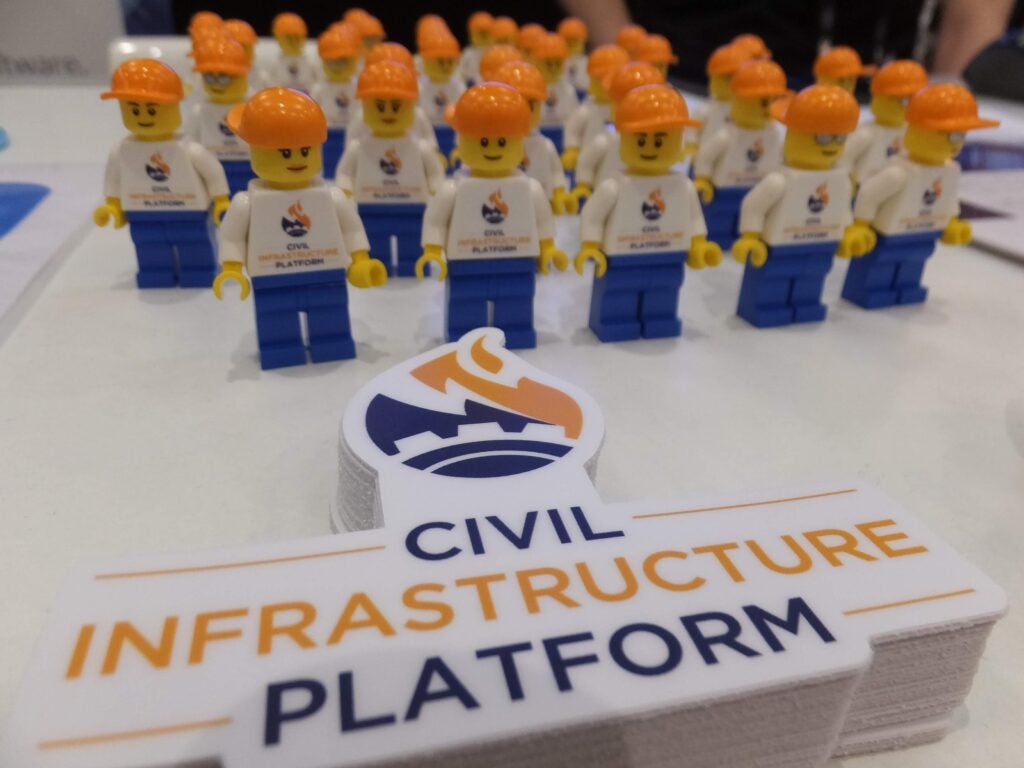The CIP Project has had an eventful week at the Linux Foundation’s Open Source Summit Europe and Embedded Linux Conference in Lyon, France. In addition to the project’s interactive booth, complete with live demos, the project also had a slew of informative and well-attended talks and hosted a completely sold out mini-summit.
Open source thrives on collaboration, and having this face to face time with the open-source community is so valuable in moving our project forward. Check out below for the details of CIP at OSS EU+ ELC.

CIP at OSS EU. Photos by Masato Minda
The Talks
CIP and CIP members had a combined total of five talks over the three-day event.
With more than 200 people in attendance, “Debian and Yocto Project-Based Long-Term Maintenance Approaches for Embedded Products,” given by Kazuhiro Hayashi, Toshiba & Jan Kiszka, Siemens AG, really struck interest from the OSS EU audience.

Jan Kiszka, Siemens AG and Kazuhiro Hayashi, Toshiba
In this talk, the duo explained the overall build and test setup in their talk about Debian and Yocto-based embedded Linux approaches that satisfy the requirement for 10+ year maintenance in industrial products, specifically around security fixes, reproducible builds, and continuous system updates.
In their talk, “Open Source Projects to Live Long and Prosper: Linux for Smart Infrastructure and Industry,” Yoshitake Kobayashi, Toshiba Corporation & Urs Gleim, Siemens AG gave an overview of the project and what happened during the last year. Especially the working groups of CIP (on kernel, real-time, core packages, security, and software update) led to great progress in providing a sustainable base for any industrial-grade Linux distribution.
SZ Lin (林上智), Moxa & Pavel Machek, Denx focused on the long-term maintenance strategy of the kernel in their talk called “Activities of Super Long Term Support Kernel Workgroup in Civil Infrastructure Platform Project.”
Wolfgang Mauerer, Siemens AG, contributed to The List is our Process: An Analysis of the Kernel’s Email-based Development Process. Together with main author Ralf Ramsauer, Technical University of Applied Sciences Regensburg, Sebastian Duda from U Erlangen, and L. Bulwahn from the ELISA project, discussed analysis methods how to track the flow of patches into the kernel, and applied their results to specific subsystems of the Linux kernel. Their work contributes to a reliability analysis of the kernel development and can be used to detect remaining weak spots.
Michael Adler from Siemens AG, and Chris Paterson from Renesas presented “A Guide to CIP and Testing,” where they walked the audience through the CIP testing approach at the Automated Testing Summit.
The CIP Mini-Summit
For the first time, the CIP project organized a mini-summit, a half-day, single-track event covering Linux-based industrial open source systems. With this event, CIP gathered those interested in open source to provide technical details and in-depth insights to further develop the industrial-grade CIP base layer which is built on the work of established and stable work from the likes of Debian, Yocto Project, Real-Time Linux. The sold-out event included topics such as
- The State of Civil Infrastructure Platform
- CIP SLTS kernel development (e.g. Patch management for collaboration with stable kernel team)
- Security in industrial systems and its future
- Safe software updates for industrial IoT devices
- Use cases of the CIP open source base layer
The CIP Booth
In addition to great content in the form of talks and sessions, the CIP community also interacted with hundreds of attendees in the CIP booth in the Sponsor Showcase. Within the booth, both Plat’Home and Toshiba demoed their technologies which are built on CIP.

CIP booth at OSS EU